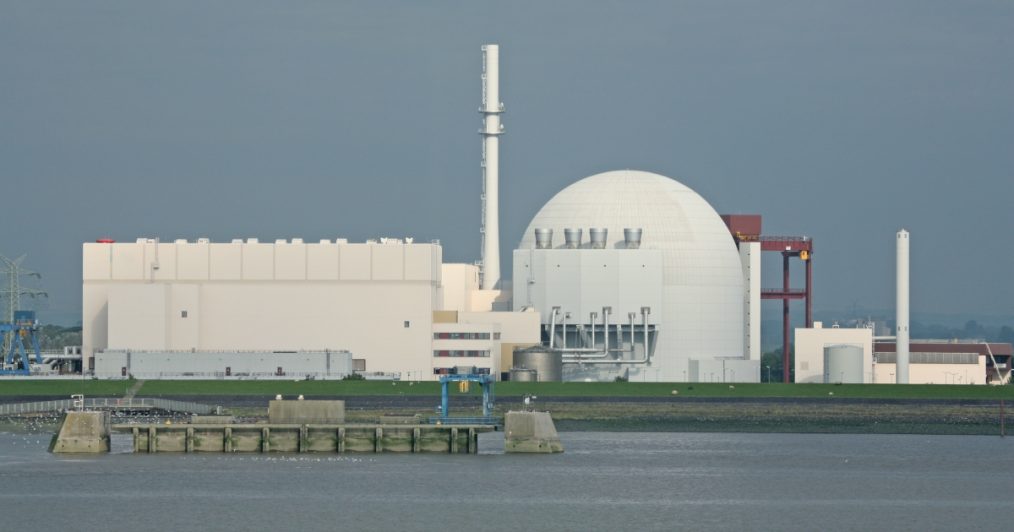
Why Nuclear Power Is Essential for National Security
The Times – Nick Fotheringham
WASHINGTON: The case for nuclear power as a cornerstone of national security is becoming increasingly undeniable. Former Trump administration officials Lucian Niemeyer and Brian McCormack articulate why nuclear energy is a vital resource in strengthening the United States’ defence capabilities while enhancing energy resilience and sustainability. With President-Elect Donald Trump signalling renewed commitment to nuclear energy during his campaign, the U.S. has an opportunity to solidify its energy security.
President Trump’s commitment to an “all-of-the-above” energy policy, including nuclear, reflects the urgency of ensuring resilient, reliable energy for national defence. In his first term, significant strides were made in collaboration with the Pentagon, Department of Energy (DOE), and the White House Office of Management and Budget. Nuclear power played a pivotal role in these efforts. Trump’s pledge to fast-track projects like nuclear reactors underscores the alignment of energy policy with defence objectives.
Nuclear energy offers unique benefits for military operations, especially for critical missions where reliability and compact, high-power energy sources are paramount. The Department of Defence (DoD) has safely operated nuclear reactors on submarines and aircraft carriers for over six decades, providing an impeccable record of operational safety and strategic value.
Critics like Alan J. Kuperman argue against nuclear energy on military bases, citing costs and risks. However, modern advancements in reactor technology counter these claims. Today’s reactors feature passive safety mechanisms like natural air circulation and convection for cooling, reducing or eliminating the need for backup power. Innovations in nuclear fuel, such as TRISO (tri-structural isotropic particle fuel), enhance safety by containing uranium in corrosion-resistant layers, minimizing risks even in attack scenarios.
Kuperman’s perspective, while well-intentioned, fails to acknowledge these advancements. It parallels judging contemporary automobile safety based on outdated 1950s designs. Modern nuclear technology has significantly evolved, thanks to the dedicated efforts of the Nuclear Regulatory Commission, National Energy Labs, and private industry.
Nuclear energy is experiencing a renaissance in the United States. States like California, Michigan, and Pennsylvania have reversed decisions to close nuclear plants, recognizing their critical role in grid stability. The private sector is investing heavily in nuclear projects to meet the demands of a digital economy, providing an alternative to diesel generators and intermittent renewable sources.
The Department of Energy, under both Republican and Democratic administrations, has consistently supported nuclear power. Energy Secretary Jennifer Granholm emphasized its importance in achieving carbon-free electricity and national sustainability goals.
The U.S. military is leading the charge in exploring nuclear energy applications. The Army is actively evaluating proposals for nuclear power installations, while the Air Force and Navy have launched initiatives to integrate nuclear technology into their operations. Projects like DoD’s Project Pele, a transportable nuclear reactor under development at Idaho National Laboratory, exemplify the military’s forward-thinking approach.
These initiatives are more than experiments; they are foundational to securing energy independence and operational resilience. The potential for nuclear power extends beyond defence applications, promising benefits for civilian infrastructure and the broader energy grid.
The challenges surrounding nuclear energy cannot be ignored, but they are surmountable. Misguided fears and misinformation must not overshadow the clear benefits of this technology. Careful testing, thorough assessments, and continued innovation will demonstrate nuclear power’s value for national security.
As Niemeyer and McCormack argue, the United States stands at the threshold of a new energy frontier. By embracing nuclear power, the nation can secure its defence infrastructure, reduce vulnerability to energy disruptions, and lead the world in sustainable energy innovation. The stakes are too high to let outdated arguments derail progress. Nuclear power is not just a choice for energy policy it is a necessity for national security.




I WILL BE VOTING FOR NUCLEAR COME THE NEXT ELECTION.!!!!!